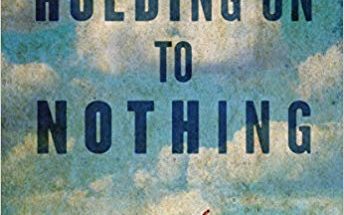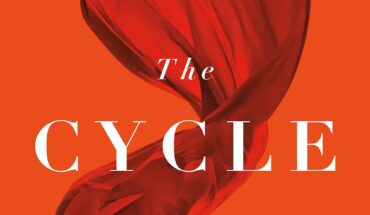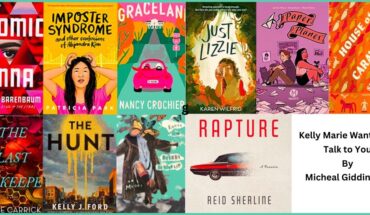Next Chapters is a biweekly feature spotlighting graduates of GrubStreet’s Novel Incubator program, which has been running since 2010.
Novel Incubator Year: 8
Current Project: The PMS Problem (Flatiron ’24), Nonfiction

What is your work when you’re not writing?
I write for a living. I co-wrote a book on business and trust, and I’m in the process of writing a nonfiction book (due next month to my editor—pray for me). I’m also a freelance journalist, and on the side, I’m working on a novel. The result is I have zero energy left for any writing outside these categories. You emailed me? I’ll call you back. You texted me? You’ll get a string of emojis. When I do have to write something (a tweet, an email, a plea to customer service), it’s usually a mishmash of gibbering and gifs.
What book do you wish you wrote? Why?
Any time I find a book I like, which is often, I wish I’d written it. Most recently Leigh Bardugo’s Shadow and Bone series, Vikram Seth’s A Suitable Boy, Min Jin Lee’s Free Food for Millionaires. I have immense writer jealousy. I used to enjoy rereading my own work and hope that one day other people would read it and shower me with praise. Now I hope people buy, like, and subscribe, but I’m always worried that I could have made the piece better. I’m always frustrated by where I am and pushing to grow.
How have you changed as a writer from 10 years ago? Five years ago?
A decade ago, I thought writing was a sacred art. I wrote when I was inspired and words welled up within me, overflowing onto the page. I also only wrote about once a month. Five years ago, I was in transition—I had a day job, but I also freelanced on the side. In my spare time, I worked on my novel. The novel felt like going to the gym—something I didn’t necessarily want to do but felt great after doing. Today, I write full time. Writing no longer feels sacred: it feels like my job. I don’t get to have writer’s block—or at least not for very long. I literally can’t picture going longer than a week without writing. I worry that this has affected the quality of my writing and made it more utilitarian and less sparkly.
What is your writing superpower/strength? How about your greatest struggle on the page?
I can revise until kingdom come. I’ve never been the most talented writer in the room, but I’ve often been the one who is willing to revise one more time and yet once more and sure one more time after that, why not? My greatest struggle is getting started. Maybe because I know once I start, I’ll be chained to my desk revising until a deadline hits me in the head and I’m forced to hand over the draft.
What surprised you most about the publishing process?
It’s such an opaque industry. Even the people in it don’t seem to know what will make a hit, what won’t. A big name agent once told me he left the business because he couldn’t handle having so much of his income tied to luck. Before I got an agent, I had lots of opinions on how to write a query letter and land an agent. Before I sold a book, I had lots of thoughts on how to sell a book. Now I have very little advice other than to write the best book you possibly can and then invest in some good luck charms and a rubber mat so you can bounce back from rejection. If the good luck charms are strong enough, maybe you won’t need the rubber mat, but I’d still get it. Yoga’s really helpful for making sure you can pull eight hours at a desk and stay coherent when the deadlines whoosh overhead.
What’s the worst writing question any non-writer has asked you?
Anything around money. I’m always happy to have a conversation about advances, contracts, freelance rates, speaking fees, etc., when the purpose is trying to understand how to make your way through an unfair system with very little pay transparency. But I find being probed for details so that others might gauge how “successful” I am spectacularly distasteful. Publishing is not a meritocracy. It’s a dark art. Sometimes you get really lucky. Mostly, you don’t. Either way, you keep writing. If you manage to write, despite the terror of the blank page and the howling of a million other distractions, you’re a success.
Shalene Gupta has a Master’s from Columbia Journalism School. In the past she was a reporter on Fortune where she wrote about the intersection of diversity and tech. Her work has appeared in Harvard Business Review, ESPN-W, and Kirkus Reviews, among others. Before working as a reporter, she taught English in Malaysia on a Fulbright scholarship and wrote a book documenting the history of the Malaysian Fulbright program. She’s co-authored the Power of Trust (Public Affairs) and is currently working on a book on PMDD/severe PMS (Flatiron ’24), and a YA novel with the Novel Incubator program. Find out more about Shalene and her work at shalenegupta.com, on Twitter @shalenegupta, and Instagram @shalene_gupta




2 comments